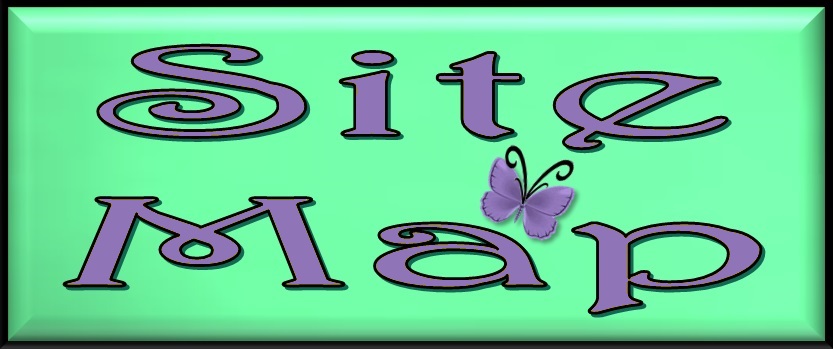The Alabaster Box
As Yeshua approached His crucifixion, He attended a dinner given by a man named Simon, who was a leper. This took place in Bethany, the village where Mary lived, who was the sister of Lazarus and Martha. Mary was very sensitive to Yeshua. She hungered to be in His presence and paid careful attention to what He said. Over and over, He told His disciples that He was going to be put to death, but they kept ignoring Him. That was not something that they wanted to think about. It did not fit in with their fond fantasies of Yeshua overthrowing the Roman occupation and making their country a world power, with them having powerful positions in its government.
These were the visions floating through their heads; their obtuseness was not merely because it was depressing to think of their beloved Master being arrested and judicially murdered. He was, after all, also telling them over and over that He would rise from the dead three days later. Mary, however, did not seek fame or fortune or control over other people's lives, so she did not have these idols scrambling Yeshua's speech. She heard what He was saying. Her heart was troubled by the truth that she had the courage to face; her beloved Master was going to die.
She thought about what she could do for Him to comfort Him in His loneliness. It is a very lonely thing to have a legitimate message that nobody wants to hear. She came up with an idea that would demonstrate that at least one person was listening to Him and hearing what He was saying. She had an alabaster box of very precious ointment, a whole pound of it, perhaps left to her as an inheritance. Was she keeping it for her own death, so that she would have a respectable burial? It became more important to her that her Master have a respectable burial. She did not know if she would be permitted to do anything for Him after He was put to death, so just in case, she would do for Him now what she could.
Mary knew that people would not understand what she was doing. She had been censured before for her devotion to the Master, as women were not considered of equal value to men in her culture. They did not have the freedom to come and go as they pleased, as men did. Many of the Jews would not speak to even their own wives, sisters, and daughters when they met them on the streets, as it was considered beneath their dignity to address or answer a woman in public.
The disciples had not wanted her there in the room when Yeshua was teaching at Martha's house, but had not dared to say anything because Yeshua had not rebuked her. They had already been rebuked before when they complained about mothers bringing their babies to Yeshua to bless. Who knew how He would react if they said something about a woman remaining in their company? It was Martha who brought up the issue, because she wanted Mary to help build her reputation as the hostess with the mostest, but Yeshua told Martha to stop fussing about non–essentials, settle down, and leave Mary alone. She had chosen the best part of service, which was to abide in His presence.
Mary again attended a gathering where Yeshua was teaching. As usual, her sister Martha was helping with the serving, though the dinner was being held in the home of Simon the leper. I am assuming that this Simon was formerly a leper whom Yeshua had healed, as lepers lived apart from other people when they were afflicted with that disease. It had been established that Mary could attend a gathering such as this as an auditor, but she was about to challenge religious and cultural norms again. She was going to initiate a prophetic sign, instead of just being a passive listener. The prophetic sign was going to acknowledge an upcoming event that the disciples were trying to ignore, and she was going to be extravagant in performing it.
This is a great act of faith that she is about to perform. Once the box of ointment is broken open, there will be nothing held in reserve for her to receive a dignified burial, but if her Master is going to be falsely accused and die an ignominious death, she is willing to follow in His footsteps, if it turns out that some day her body will be buried like that of an unknown pauper. She cares no more about what is going to happen to the shell of her body when it is cast off. She knows her soul and spirit, the parts of her being that matter the most, will be with Yeshua in Heaven, and in due time, He will take care of the matter of resurrecting her body.
The dinner is in full throttle when oddball Mary creeps into the room holding her precious container of ointment. Her heart likely was pounding and felt like it was going to leap out of her chest, as she quietly skirted the room like a shadow to get to where Yehosha reclined in the place of honour. Maybe Martha noticed her and wondered what she was up to now. The men were not paying attention. They now knew better than to say anything, but that did not mean that they had to consider her worth their notice, if she wanted to hang about.
Suddenly, to everyone's shock, except for Yeshua's, she is standing next to Him, breaking open the box, and ointment is dripping down on His head. Mary pours it on Him from His head to His feet, and then throws off her veil (another shocking act) as she kneels in devotion and wipes His feet with the hair of her head. The company probably wonders if Mary is mentally ill, seeing as she seems to be given to inappropriate and extreme behaviour (culturally speaking), but Mary has entrusted her reputation to the Lord. She knows that what she is doing is not destructive, but in keeping with sound moral values. The heavy scent of the ointment fills the room.
As usual, Yeshua seems to take this latest behaviour of Mary's in stride, but it is too much for the disciples. Judas, in particular, is outraged over the extravagance of the gesture. He grumbles about how that ointment could have been sold for a lot of money and used to relieve the suffering of the poor. The other disciples agree.
Yeshua wants to know what they are muttering about. Judas speaks up and remonstrates about how the ointment should have been sold to relieve the poor. Yeshua replies that, right now, He needed to be comforted, and Mary had found the perfect way to demonstrate that at least one person took Him seriously when He talked about His impending tribulation.
It seems to me that Yeshua must have looked straight into Judah's eyes when He replied that they would always have the poor with them to whom they could show mercy, but He would not always be around, and Mary had done what she could to prepare Him for His death.
I think that Judas read in His eyes that Yeshua knew that he was a thief and cared nothing for the poor, that he was using ministry funds to feather his own nest. He was betraying the Lord, and this led to an even greater betrayal. I think that it was this incident that decided Judas to sell Yeshua out to the religious leaders, though he probably flipped it around in his mind later to justify it.
He probably figured that he would force Yeshua into a position where He would have to show His mighty power to the religious leaders to defend Himself, and then they would know that He was the promised Messiah and give Him their support. Later, when he saw that Yeshua had no intention of defending Himself, and that the rulers were going to put Him to death, he experienced remorse over having been spiteful and betrayed innocent blood.
His motive had not been to perform a political maneuveur that would end up as an advantage to his Master; his motive was revenge, because Yeshua knew what he was and what he had been up to. He knew that Yeshua was giving him a chance to repent of his sin and confess to what he had been doing. He had no intention of doing that, but if he was going to be booted out, he would take control of the situation and make some profit from it.
Mary again has ended up at Yeshua's feet and had her actions defended. Not only were they defended, but Yeshua also instructs all of His disciples throughout all time to tell this story about Mary when they tell others about Him, and how she radically obeyed the Spirit of God and worshipped her Saviour extravagantly.
Obeying God will cut across cultural norms, offend religious spirits, and confront people with facts that they would rather not face. Every radical act of obedience is akin to breaking open an alabaster box of very precious perfume, and the smell of it reaches to Heaven, giving God great pleasure. It will raise censure and might even be the prelude to our own burial, but in Yeshua, there is a joyous resurrection to eternal life.
Do we dare to sit at His feet, as Mary did, and hear what He wants us to do? It seems to me that the cost of not listening to Yeshua and obeying Him is greater. Think about what it cost Judas to refuse to submit to the Lord. Yeshua said that it would have been better for him if he had not been born.
Your word have I hid in my heart, that I might not sin against you.
[Psalm 119:11]



































 Return to the
Return to the